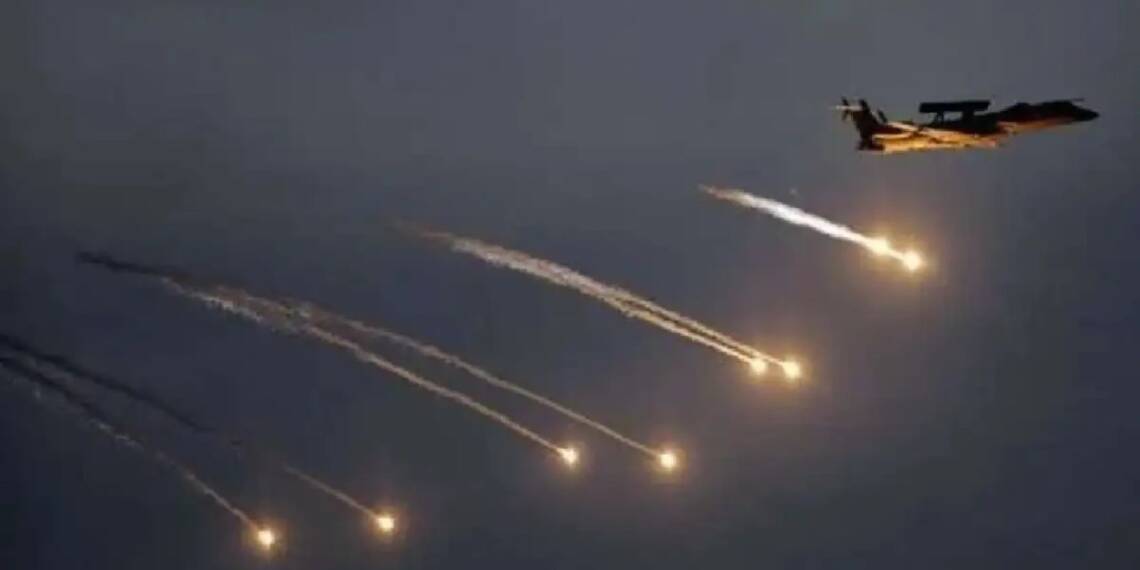On 24 December, the Pakistani forces conducted a late-night air strike in the bordering regions of neighboring Afghanistan. The strikes were reportedly carried out against the Pakistani Taliban who are based in Afghanistan and operating in the highly contested Khyber Pakhtunkhwa province which has been claimed by both countries.
The Afghanistan government, ruled by the Taliban, confirmed the attack in a statement but mentioned that the civilian population had been targeted in the strike. The Taliban spokesperson said at least 46 people, mostly women and children, were killed in the air strike.
“The Pakistani side should understand that such arbitrary measures are not a solution to any problem,” Enayatullah Khowarazami, spokesperson for Afghanistan’s Defence Ministry, wrote on social media platform X. “The Islamic Emirate will not leave this cowardly act unanswered and considers the defence of its territory an inalienable right,” he added, referring to Afghanistan by the name given by the Taliban government.
This is the second time this year that the Pakistani Air Force has conducted attacks on Afghanistan soil in the name of neutralizing the Taliban faction operating in its region.
The Pakistani Taliban
Pakistan has on many occasions accused Afghanistan’s government, the Taliban, of harbouring terrorists, especially members of the Pakistani Taliban known as the Tehrik-e-Taliban Pakistan (TTP). The TTP, once part of the Taliban, is now a separate group operating in the border regions of Pakistan, especially Khyber Pakhtunkhwa, which is accused of carrying out cross-border attacks targeting Pakistani security forces. The number of attacks on Pakistan, especially on the security personnel, has increased manyfold in recent months. Last week, 16 Pakistani soldiers were killed in South Waziristan in one of the deadliest recent attacks on security personnel.
According to Pakistan’s Interior Ministry data, 1,500 violent incidents have happened in the last 10 months, which resulted in at least 924 deaths, including 579 security personnel and 351 civilians. The Pakistan for Conflict and Security Studies (PICSS), an Islamabad-based research organization, has research data that highlights 856 attacks so faring 2024, surpassing the 645 incidents recorded in 2023.
This data shows that militant attacks on Pakistani Soldiers have become a norm, which creates a serious security threat for Pakistan. Islamabad believes that the rise in attacks and deaths, particularly in the restive northwestern Khyber Pakhtunkhwa province and the Balochistan province, both of which border Afghanistan, is due to the Taliban harbouring anti Pakistan militants on its soil. The deteriorating situation in the region has provided a reason for the Pakistani government to act against the TTP on Afghanistan soil.
Pakistan is currently being targeted by the Pakistani Taliban also known as the Tehrik-e Taliban Pakistan (TTP) which is a coalition of armed networks created in 2007 to unite opposition to the Pakistani military. The TTP’s stated goals are to eliminate Islamabad’s power in Pakistan’s Federally Administered Tribal Areas and bordering Khyber Pakhtunkhwa Province, to enforce a strict interpretation of Sharia throughout Pakistan.
TTP officials have also publicly said that the group intends to establish an Islamic caliphate in Pakistan, which would necessitate the destruction of the Pakistani government. TTP has consistently maintained tight contacts with senior al-Qaeda commanders, including the organization’s previous head of operations in Pakistan.
Meanwhile the Afghan government has refuted all such allegations of it providing refuge to armed groups or allowing their territory to be used for cross-border attacks. During a United Nations Security Council meeting last week, Pakistan had even gone on to accuse Afghanistan, claiming that thousands of Pakistan Taliban fighters had sought shelter in Afghanistan.
Pakistani diplomat Usman Iqbal Jadoon said at the UN meeting, “The TTP, with 6,000 fighters, is the largest listed terrorist organization operating in Afghanistan. With safe havens close to our border, it poses a direct and daily threat to Pakistan’s security.”
Will it solve the problem?
Pakistan has conducted at least four air raid operations on TTP hideouts in Afghanistan over the past few years. However, a serious flaw in Pakistan’s Afghanistan policy was its “inconsistent approach.
A security analyst from Pakistan, Ihsanullah Tipu, said, “Historically, Pakistan’s approach has been personality-driven rather than strategy-driven. Actions such as cross-border air strikes should be part of a comprehensive and well-planned policy instead of reactive measures.”
Pakistan, itself involved in harbouring non-state actors, looks ugly while pointing its finger for the same to its Western neighbours. While the Afghanistan Taliban vows to retaliate, the original response may come from the TTP. The cross-border attacks have increased globally and have become a norm in global politics. It looks unlikely that Pakistan would face any criticism or consequences from the international community for the airstrike.
The situation presents a big challenge to Pakistan and a matter to introspect that despite four decades of engagement in Afghanistan and having cordial relations with them before their take over of Kabul, Pakistan still has not developed diplomatic skills to hold dialogue with rulers in Afghanistan, whoever it might be, in a constructive manner.







